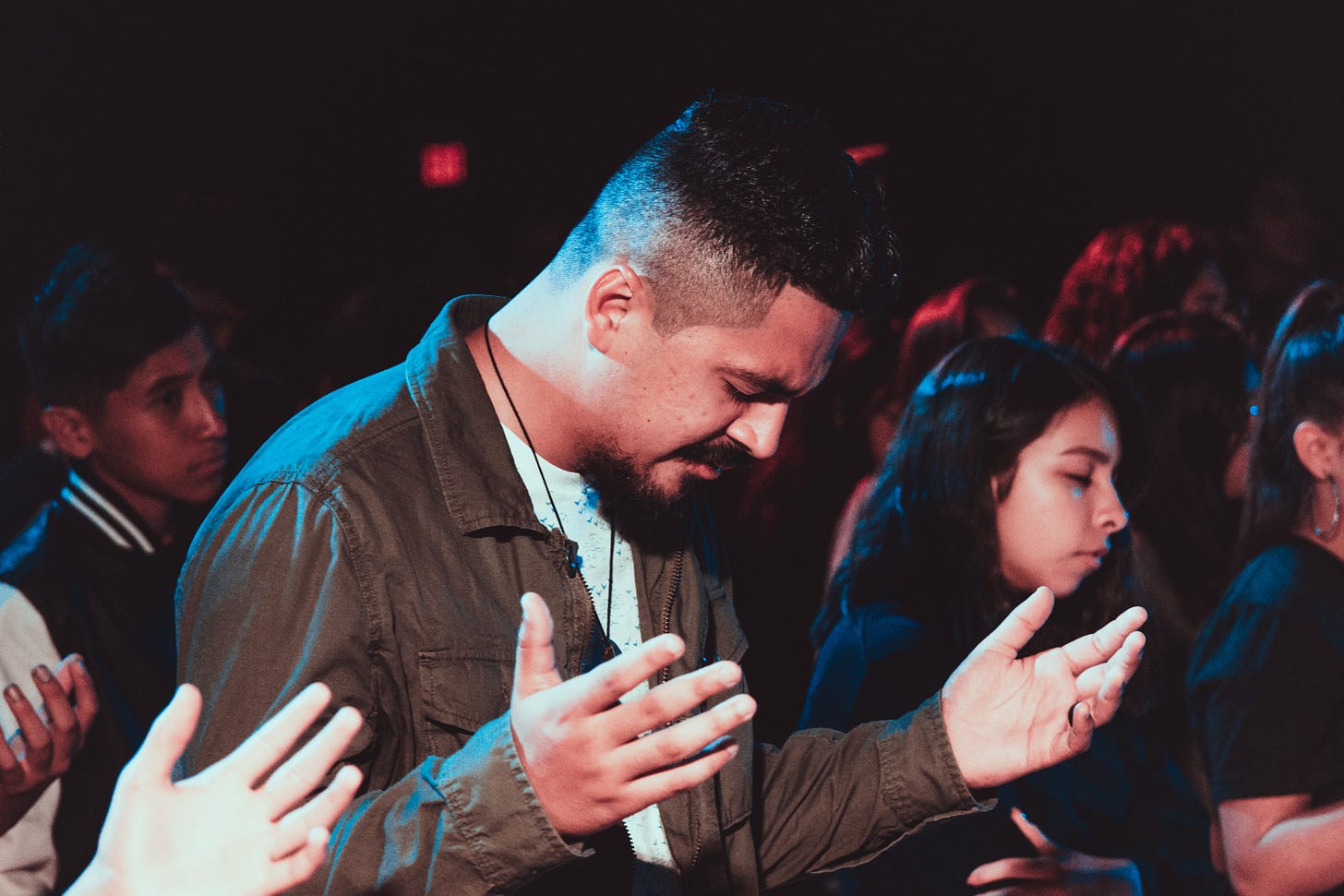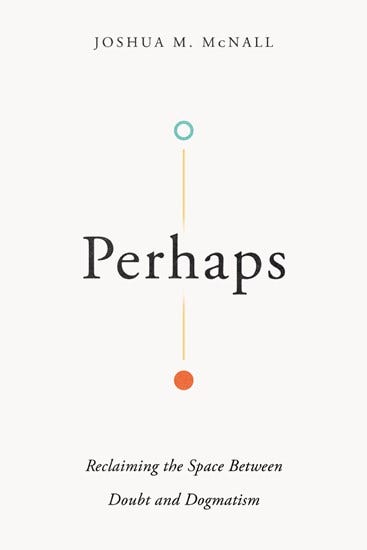If you find our weekly free articles helpful, we encourage you to become a subscriber to our monthly newsletter. The support of our subscribers and patrons make The Worldview Bulletin possible. If you’d like to grow in your ability to articulate and defend the Christian worldview, and support our work defending Christianity at the highest levels, we invite you to become a subscriber.
A friend recently called my church a “unicorn.” Despite what you may think, this wasn’t an insult but a compliment. The description was not meant to say my church is some kind of mythical creature (although I know she enjoys a good fantasy story). What she implied is that my church, located in Madison, Wisconsin, is a rarity. She’d be right. Why?
City Church is a non-denominational, charismatic church that regularly teaches apologetics—a very rare combination. Lead Pastor Tom Flaherty loves apologetics and has created a space where it is regularly taught. How did he do it?
He first became interested in apologetics for his own family. Having four children in the public school system, Flaherty realized that he was going to need answers. His study of apologetics naturally flowed into his sermons.
Upon incorporating this new apologetics knowledge into church ministry, Flaherty recognized quickly that apologetics is not necessary for everybody. He learned that there are three groups of people:
1. Some people do not want to believe and are not open to the evidence.
2. Some choose to believe apart from evidence—a childlike faith without intellectual confirmation; they tend to find apologetics uninteresting and unnecessary.
3. Some are willing to believe if it’s true; they need to be convinced that Christianity is true. For those people, apologetics helps the most.
Flaherty’s experience is that many evangelicals fall into the second category, and so he has adjusted his sermons accordingly. He will sprinkle a little bit of apologetics into a Sunday message, but if he’s going to do a big apologetics talk, Flaherty saves that for a special evening service or class. Those evening meetings allow him to engage in discussions, answer questions, and receive comments.
“Sunday morning is to hold up the authority of Scripture and to preach the Word of God, yet apologetic themes should be included because it’s about the truth,” he said.
For extensive teaching that goes into lots of detail about apologetics, Flaherty reserves a special evening talk or classes. For example, if he's preaching on the book of Genesis, he will give the congregation a taste of some apologetic-related themes in the sermon, and then promote attendance to a special evening service to give his full answer around the issue of creation and evolution.
To get the congregation interested in attending, he reminds them what children are learning in public schools and online, or why it’s important to have good answers to engage in reasonable discussions with work associates. It has been Flaherty’s experience that there is an amazing amount of people who want the full answer, so attendance at these evening meetings has been good. And if some hesitate to attend? “Tell them that if you love your children and want to reach the unsaved, you need to learn some apologetics for their sakes.”
He does warn pastors not to answer questions people aren’t asking. “It may be fascinating to you, but your congregation will be yawing,” Flaherty said. That’s why he sets aside alternative times to talk about wider apologetic questions.
At City Church, Flaherty has added a regimen of classes on the Old Testament, the New Testament, major church doctrines and answers to difficult questions (apologetics). These classes are held each fall and spring in the evenings for an 8-week semester. Classes are co-taught by some of his best Bible teachers within the congregation so that Flaherty is not the only one teaching. This helps lighten his load.
He also encourages pastors to read and be up on the latest arguments to help people process the issues of this age. Flaherty first read More Than a Carpenter by Josh McDowell. He also recommends Mere Christianity by C. S. Lewis, and Darwin on Trial by Phillip Johnson. Reading opposing views is good, too, as he read The God Delusion by Richard Dawkins to understand those arguments.
Flaherty says pastors do not need to fear hard questions, even in locations with highly educated people. A few years ago, there was a study done on “smart” cities, and Madison ranked the 8th smartest city in the USA.[1] Because of this, Flaherty does not feel Madison can be won for Christ without a sharp mind. However, he knows a flowing heart of love for people should be the foundation of outreach because we’re not necessarily going to win people with a better argument.
“There’s lot of pride in Madison, and we’re going to have to come with a humble spirit. People in Madison are probably going to have to see something that they can’t account for with just their intellect,” Flaherty said. But he also knows there will be no audience if we can’t talk their language.
“The message needs be a blend of the head and the heart. Ultimately they (Madisonians) must accept an alternate, unseen reality. Yet, they won’t embrace that if we are not willing to embrace the seen reality, too,” he explained.
Flaherty believes God wants us to ask questions and form people who are willing to think. He doesn’t just tell people what to believe; he tells them how to think, even if they don’t agree on all of his positions on apologetics. He finds common ground.
“Some people in our congregation believe that the earth is less than 10,000 years old, and that is just their take on the Bible. We also have people in the congregation that have a very high view of science and believe in theistic evolution,” Flaherty went on. “But they love Jesus, and we’re not going to divide over creation and how we think God did it. We are absolutely in agreement that God is the Creator, and Jesus is the Savior.”
In his talks, Flaherty gives his opinion and then tells congregants they can agree to disagree about some things, but nonetheless, they should be discussed. “The things we agree on are more important,” he added.
Flaherty records his apologetic talks. He then has those uploaded to the church website or records them on a CD for people to listen to later. This way, when he gets a question about the Bible and science, for example, he can simply hand them a CD or tell them to listen to the talk online. The talks are always available, and updated as needed.
For smaller churches that don’t have the staff or those qualified to teach, he suggests providing the congregation with a list of approved resources, like apologetics books, podcasts, and YouTube channels. That list can be made accessible via a website or a printout at the church reception desk.
A recommendation to pastors, Flaherty said, is to deal with the offense of Jesus being the only way. “This is the hill you die on,” he said. “This is what makes you a Christian. Jesus is the only way to heaven.”
So the apologetics material to study would be on other religions, is everyone who doesn’t believe going to hell?, and the fate of the unreached. This also ties into the evidence for the Resurrection—if that is not true, then the Gospel is not true. Every pastor needs to know this, Flaherty encouraged, adding that one also needs to know why the Bible is true.
“You better have an argument against The Da Vinci Code,” he laughed.
A final issue on which Flaherty cautions pastors: “Stick to training Christians and if someone from academia comes to you for information, don’t present yourself as an expert in it because academia only respects degrees.” He recommends coming from a place of humility.
“The greatest things from God are going to come from revelation, not apologetics,” Flaherty said. “But I love what N. T. Wright says about apologetics. He likened it to a candle in a dark room of rationalism. It shows you that there is a curtain, called childlike faith, and that apologetics gives you permission to open that curtain to let the sun come in.”
So there is a unicorn-like church in one of the smartest cities in the United States that blends apologetics with the Spirit, drawing the curtain back to reveal the Son in the unseen realm. If it can be done in Madison, it can be done anywhere.
With God, all things are possible (Matt. 19:26)!
Notes
[1] Madison was named the 8th smartest city in America by the website Lumosity. Many “smart cities” are located near major universities, and UW Madison ranks highly among public institutions.
— Lisa Quintana earned her Master’s Degree in Apologetics from Biola University, is the Lead Instructor at Christian Life College (Madison, Wisconsin campus) and School of the Bible (an adult Bible class) at her local church. She serves as a Senior Writer for Women in Apologetics. She has a passion to use apologetics as a tool for evangelism to reach a highly skeptical American culture. She wants people to know Jesus like she knows Him—as the author of love and life. Find her online at: thinkdivinely.com.
Photo by Ismael Paramo on Unsplash
Perhaps
Reclaiming the Space Between Doubt and Dogmatism
The Christian life requires faith. That means that believers are sometimes faced with uncertainty. But is all uncertainty bad?
Theologian Joshua McNall encourages readers to reclaim the little word “perhaps” as a sacred space between the warring extremes of unchecked doubt and zealous dogmatism. To say “perhaps” on certain contested topics means exercising a hopeful imagination, asking hard questions, returning once again to Scripture, and reclaiming the place of holy speculation as we cling to a faith that stands distinct from both pervasive skepticism and abrasive certainty.
“In a polarized world with the rigidity of fundamentalisms on the one hand and the nihilism of skepticisms on the other, McNall enters to sketch a way forward for the holiness of intellectual humility. This is a creative book that not only argues winsomely from Scripture, theology, and literature, but also invites the reader into a narrative that portrays how the weight of its claims press on everyday life. Perhaps will be especially helpful for the student wrestling with the challenges of Christian orthodoxy, and all looking for breathing room to wonder, hope, and ultimately, trust.”
— James M. Arcadi, associate professor of biblical and systematic theology at Trinity Evangelical Divinity School
Find Perhaps at Amazon, InterVarsity Press, and other major booksellers.
*Sponsored post
Advertise in The Worldview Bulletin
Advertising in The Worldview Bulletin is an effective way to promote your product or service to thousands of readers who share your commitment to the Christian worldview. Visit here to learn more.





